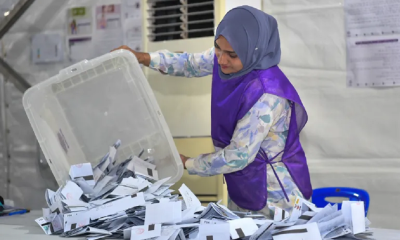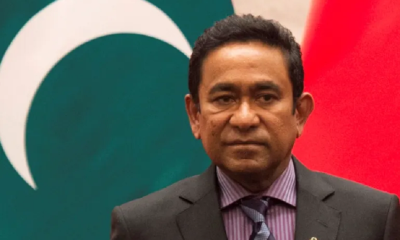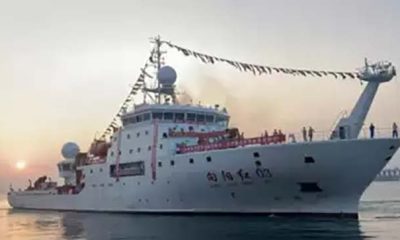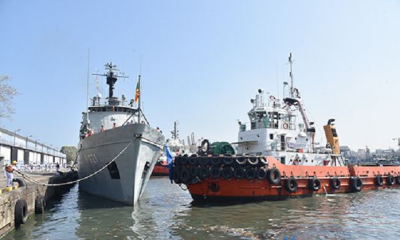News
Maldives to battle rising seas by building fortress islands
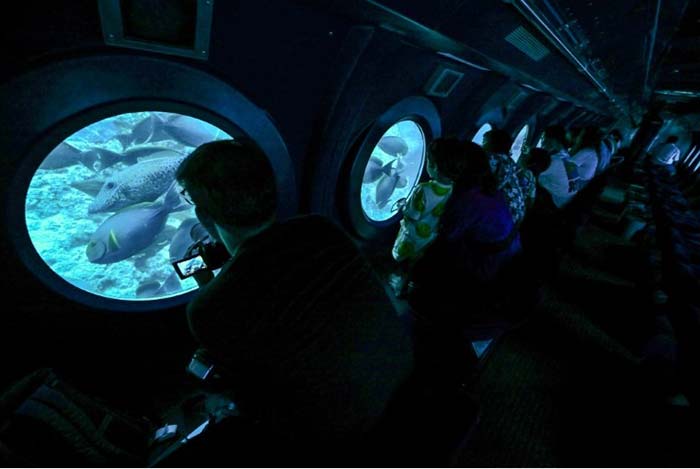
By Amal JAYASINGHE
Malé (Maldives) AFP: Rising sea levels threaten to swamp the Maldives and the Indian Ocean archipelago is already out of drinking water, but the new president says he has scrapped plans to relocate citizens. Instead, President Mohamed Muizzu promises the low-lying nation will beat back the waves through ambitious land reclamation and building islands higher — policies, however, that environmental and rights groups warn could even exacerbate flooding risks.
The upmarket holiday destination is famed for its white sand beaches, turquoise lagoons and vast coral reefs, but the chain of 1,192 tiny islands is on the frontlines of the climate crisis and battling for survival. Former president Mohamed Nasheed began his administration 15 years ago warning citizens they might become the world’s first environmental refugees needing relocation to another country.
He wanted the Maldives to start saving to buy land in neighbouring India,Sri Lanka or even far away in Australia.But Muizzu, 45, while asking for $500 million in foreign funding to protect vulnerable coasts, said his citizens will not be leaving their homeland.
“If we need to increase the area for living or other economic activity, we can do that,” Muizzu told AFP, speaking from the crowded capital Male, which is ringed with concrete sea walls.”We are self-sufficient to look after ourselves”.
The tiny nation of Tuvalu this month inked a deal to give citizens the right to live in Australia when their Pacific homeland is lost beneath the seas.But Muizzu said the Maldives would not follow that route.
“I can categorically say that we definitely don’t need to buy land or even lease land from any country,” Muizzu said.Sea walls will ensure risk areas can be “categorised as a safe island”, he said.But 80 percent of the Maldives is less than a metre (three feet) above sea level.And while fortress-like walls ringing tightly-packed settlements can keep the waves at bay, the fate of the beach islands the tourists come for are uncertain.
Tourism accounts for almost one-third of the economy, according to the World Bank.Nasheed’s predecessor, Maumoon Abdul Gayoom, was the first to ring the alarm of the possible “death of a nation”, warning the United Nations in 1985 of the threat posed by rising sea levels linked to climate change.
The UN’s Intergovernmental Panel on Climate Change (IPCC) warned in 2007 that rises of 18 to 59 centimetres (7.2 to 23.2 inches) would make the Maldives virtually uninhabitable by the end of the century.The warning lights are already flashing red.
Gayoom’s fear of his country running out of drinking water has already come true, as rising salt levels seep into land, corrupting potable water.”Every island in the Maldives has run out of fresh water,” said Shauna Aminath, 38, the environment minister until last week, when Muizzu’s government took power.he said
Almost all of the 187 inhabited islets in the archipelago depend on expensive desalination plants, she told AFP.”Finding ways as to how we protect our islands has been a huge part of how we are trying to adapt to these changes”, Aminath said.
The capital Male, where a third of the country’s 380,000 citizens are squeezed onto a tiny island, is “one of the most densely populated pieces of land in the world” with 65,700 people per square kilometre, according to the environment ministry.A giant sea wall already surrounds the city, but Muizzu said there is potential to expand elsewhere.
Reclamation projects have already increased the country’s landmass by about 10 percent in the past four decades, using sand pumped onto submerged coral platforms, totalling 30 square kilometres (11 square miles).Muizzu, a British-educated civil engineer and former construction minister for seven years, played a key part in that, overseeing the expansion of the artificial island of Hulhumale.
Linked to the capital by a Chinese-built 1.4-kilometre (0.8-mile) bridge, with tower blocks rising high over the blue seas, Hulhumale is double the area of Male, home to about 100,000 people.But environmental and rights groups warn that, while reclamation is needed, it must be done with care.In a recent report, Human Rights Watch (HRW) accused the authorities of failing to implement their own environmental regulations, saying reclamation projects were “often rushed” and lacked proper mitigation policies.
It gave the example of an airport on Kulhudhuffushi, where 70 percent of the island’s mangroves were “buried”, and a reclamation project at Addu which damaged the coral reefs fisherman depended on.”The Maldives government has ignored or undermined environmental protection laws, increasing flooding risks and other harm to island communities,” HRW said.
Ahmed Fizal, who heads the environmental campaign group Marine Journal Maldives (MJM), said he feared politicians and businessmen saw shallow lagoons as potential reclamation sites to turn a quick profit.”You have to ask ‘what is the limit, what is the actual cost of reclamation?’”, he said.
News
X-Press Pearl disaster fuels global call to classify plastic pellets as hazardous
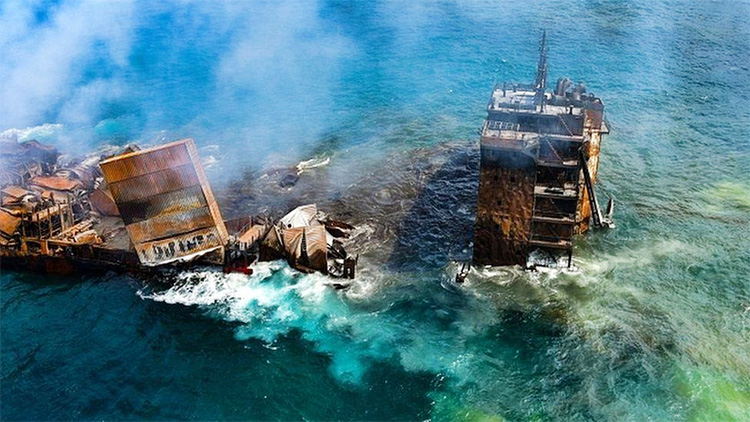
Nearly five years after the catastrophic sinking of the X-Press Pearl, off Sri Lanka’s western coast, the environmental scars remain visible — from contaminated beaches to disrupted fisheries. Now, that tragedy has become a rallying point for an international coalition of scientists, demanding urgent reforms to global maritime law.
A group of leading researchers and environmental experts is calling on the International Maritime Organisation (IMO) to formally recognise plastic pellets — commonly known as nurdles — as hazardous to the marine environment. They argue that existing international shipping regulations fail to adequately address the environmental devastation caused by pellet spills.
Their appeal comes through a newly accepted scientific commentary, published in Cambridge Prisms: Plastics, consolidating decades of research on the impacts of plastic pellet pollution.
Plastic pellets are small, lentil-sized (2–5 mm) particles made from virgin or recycled plastic and used to manufacture a vast range of plastic
products. Scientists say that spills occur frequently during handling and transport, both on land and at sea. Once released into the ocean, pellets persist for decades, spreading across vast distances and entering marine food chains.
Dr. Jennifer Lavers, who studies pollutants in seabirds, warned that the scale of plastic ingestion has reached crisis levels.
“Today the volumes of plastic pellets entering the marine environment are enough to ‘feed’ millions of young seabirds,” she said. “In some areas we are seeing nearly a 100% rate of plastic ingestion, with pellets being particularly problematic.”
Beyond physical harm such as digestive blockages in wildlife, pellets also pose chemical threats. According to Dr. Sinja Rist of DTU Aqua, they are far from inert materials.
“Pellets are persistent, widely dispersed, readily ingested by wildlife, and capable of transporting hazardous chemicals,” she explained, noting that they can absorb and release toxic substances across oceans.
Sri Lanka’s experience with the X-Press Pearl disaster, in 2021, highlighted these dangers on an unprecedented scale. The burning container ship released vast quantities of chemicals and billions of plastic pellets into the sea, causing widespread marine contamination and severe economic losses to coastal communities.
Hemantha Withanage, Chairperson of the Centre for Environmental Justice in Sri Lanka, said the disaster exposed major gaps in international maritime regulation.
“After studying the aftermath of the X-Press Pearl disaster, it is impossible to argue that plastic pellets are harmless cargo,” Withanage stressed. “The impacts in Sri Lanka were immediate, widespread, and long-lasting. Stronger international regulation is essential to prevent this from happening again.”
Under the International Convention for the Prevention of Pollution from Ships (MARPOL), the intentional discharge of plastics is banned. However, scientists argue that current rules are inadequate when it comes to preventing or responding to accidental spills, especially those involving container ships.
The researchers are urging the IMO to assign plastic pellets a specific United Nations classification number. Such recognition would formally acknowledge their environmental hazard potential and trigger stricter requirements for packaging, labelling, and emergency notification during shipping.
Dr. Therese Karlsson, lead author of the commentary and Science Advisor for the IPEN, said the scientific case is clear.
“There are decades of studies highlighting threats from plastic pellets released into the oceans, including risks to marine animals and the food chain,” she said. “Plastics contain thousands of chemicals, many known to cause harm to the environment and human health. It is past time for global regulations to protect our oceans.”
The European Union has recently introduced measures aimed at preventing pellet losses throughout the supply chain, and in 2021 the IMO committed to addressing pellet pollution as part of broader efforts to reduce marine plastic litter. Yet experts warn that without binding global action, pellet spills will continue.
For Sri Lanka, still recovering from one of the worst maritime environmental disasters in its history, the international call carries particular urgency.
Scientists say the message from the island nation’s experience is unmistakable: plastic pellets must no longer be treated as ordinary cargo, but as hazardous materials demanding strict global oversight.
By Ifham Nizam
News
Foreign Minister Herath decries deadlock in global disarmament
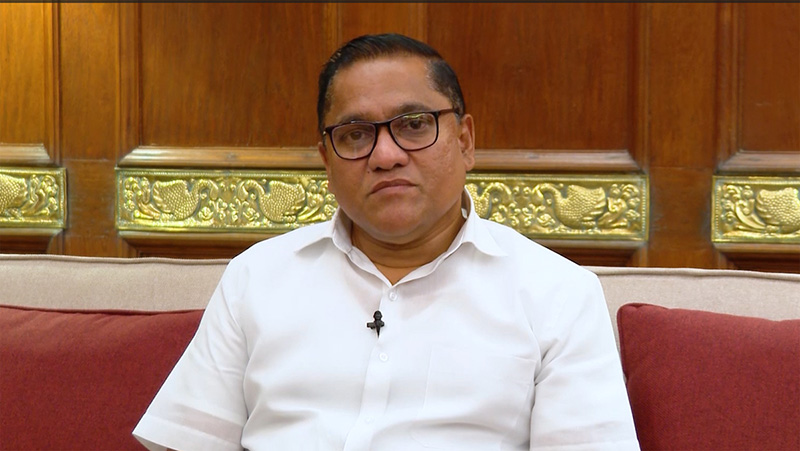
Minister of Foreign Affairs, Vijitha Herath, has underscored the urgent global need for enduring peace, security, and strengthened multilateral cooperation, warning that rising geopolitical tensions have created deadlocks in global disarmament efforts and posed serious challenges to international humanitarian law.
The Minister said so while addressing the High-Level Segment of the Conference on Disarmament (CD) in Geneva on Monday (23 Feb), reaffirming Sri Lanka’s firm commitment to global disarmament and multilateral cooperation.
Minister Herath said that safeguarding the future of humanity must be treated as a paramount priority, stressing that trust and mutual respect are essential foundations for effective decision-making in multilateral forums. He reaffirmed that Sri Lanka remains committed to ensuring a secure and stable world for future generations.
Highlighting Sri Lanka’s longstanding role in nuclear disarmament, he recalled the country’s contribution to the 1964 Non-Aligned Movement Summit in Cairo, which called for the establishment of nuclear-free zones. He reiterated that Sri Lanka continues to strongly support such initiatives, particularly in the Middle East, and emphasiSed that total elimination and non-proliferation remain the only guarantees against the use of nuclear weapons.
Sri Lanka also urged that non-nuclear-weapon states must receive unconditional, non-discriminatory, legally binding security assurances, achievable through the work of the Conference on Disarmament.
On humanitarian demining, Minister Herath noted that Sri Lanka remains an active partner in that effort and currently serves as a senior member of the victim assistance committee of the Anti-Personnel Mine Ban Convention. He further reaffirmed Sri Lanka’s continued commitment to the Cluster Munitions Convention, which the country presided over in 2019.
Recognising the rapidly evolving threat landscape, the Minister warned of the impact of emerging technologies that have already reshaped the global disarmament architecture while putting international humanitarian law at significant risk. In this context, he said Sri Lanka has been advocating for the early start of negotiations on a legally binding instrument to prohibit lethal autonomous weapon systems.
He also addressed growing threats to outer space security, stressing that Sri Lanka, long a supporter of disarmament in outer space, continues to back negotiations on a legally binding instrument to prevent an arms race beyond Earth.
Minister Herath concluded by affirming Sri Lanka’s readiness to work with all nations to ensure global efforts toward a safer world are accelerated and achieved at the earliest opportunity.
News
CoPF orders officials to establish legal framework for Rs. 200 for estate workers daily attendance allowance
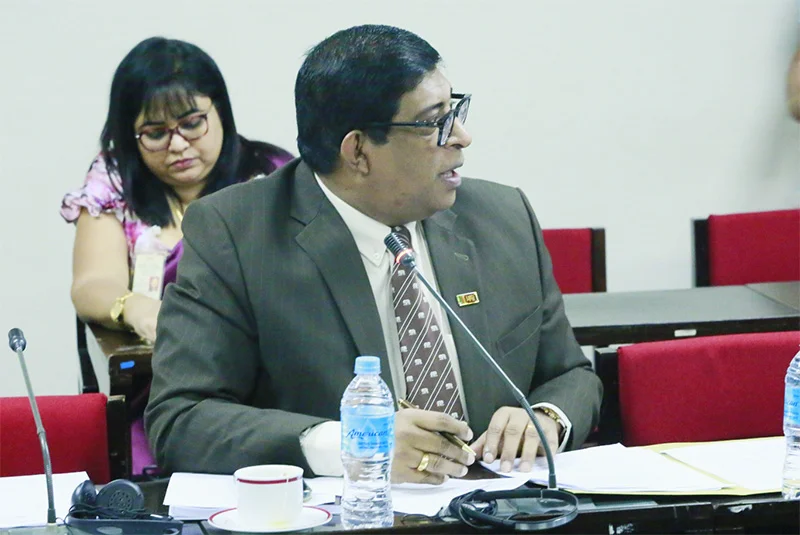
The Parliamentary Committee on Public Finance has directed officials to establish a proper legal framework for the Rs. 200 daily attendance allowance provided by the Government to estate workers.
During the Committee meeting on February 17, 2026, chaired by MP Dr. Harsha de Silva, members emphasised that while there is no objection to increasing estate worker wages, the current payment mechanism lacks a formal legal basis. The allowance is being distributed under a Memorandum of Understanding (MoU) with private plantation companies without gazette notification, leaving the arrangement vulnerable to termination and excluding contributions to the Employees’ Provident Fund (EPF) and Employees’ Trust Fund (ETF), according to parliament sources.
Officials noted that the MoU with plantation companies was valid for three years, and thereafter a policy decision would be required to continue the payments. The Committee stressed that public funds should not be used to pay salaries in private institutions without proper financial discipline, despite the allowance being approved under the 2026 Budget as a “development subsidy.” The Deputy Secretary to the Treasury suggested the payment would be more appropriately classified as a “production incentive,” though existing payments and MoUs did not specify such requirements.
The Committee also reviewed disaster relief efforts for those affected by Cyclone Ditwah. Officials reported that approximately Rs. 24.4 billion had been disbursed under various relief programs, including allowances for house cleaning, household purchases, and school assistance. Delays in housing reconstruction and rental support were attributed to damage assessments and land identification, with Committee members urging faster delivery of housing aid.
Officials from the National Insurance Trust Fund (NITF) highlighted reinsurance claims of around Rs. 11 billion following Cyclone Ditwah, noting that although NITF had not reinsured its exposure internationally since 2023, it was capable of settling existing claims.
-

 Features4 days ago
Features4 days agoWhy does the state threaten Its people with yet another anti-terror law?
-

 Features4 days ago
Features4 days agoReconciliation, Mood of the Nation and the NPP Government
-

 Features4 days ago
Features4 days agoVictor Melder turns 90: Railwayman and bibliophile extraordinary
-

 Features3 days ago
Features3 days agoLOVEABLE BUT LETHAL: When four-legged stars remind us of a silent killer
-

 Features4 days ago
Features4 days agoVictor, the Friend of the Foreign Press
-

 Latest News5 days ago
Latest News5 days agoNew Zealand meet familiar opponents Pakistan at spin-friendly Premadasa
-

 Latest News5 days ago
Latest News5 days agoTariffs ruling is major blow to Trump’s second-term agenda
-

 Latest News5 days ago
Latest News5 days agoECB push back at Pakistan ‘shadow-ban’ reports ahead of Hundred auction




